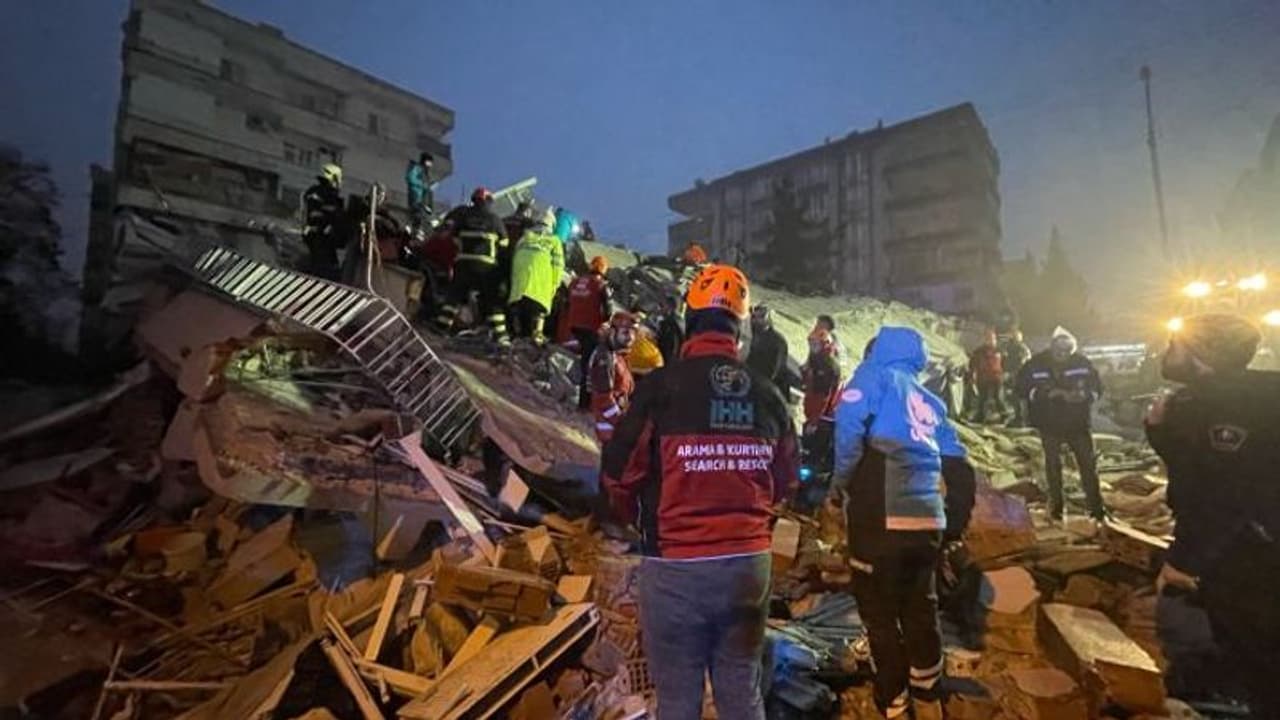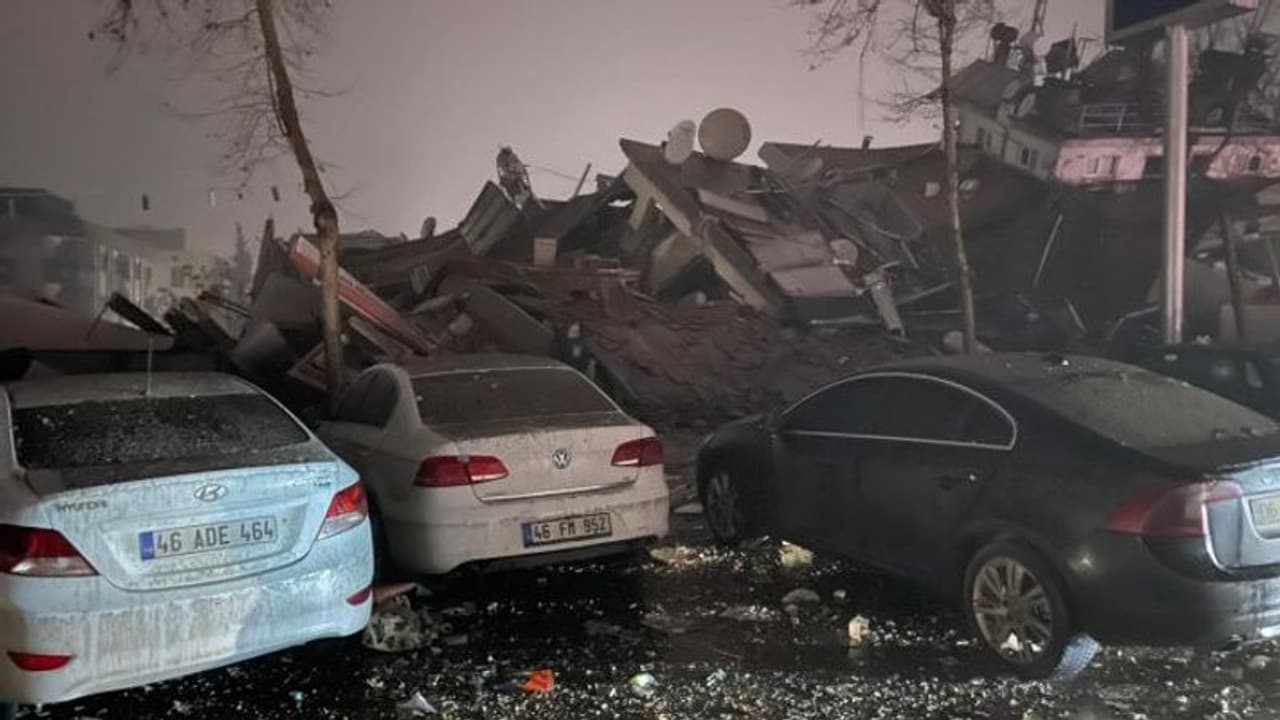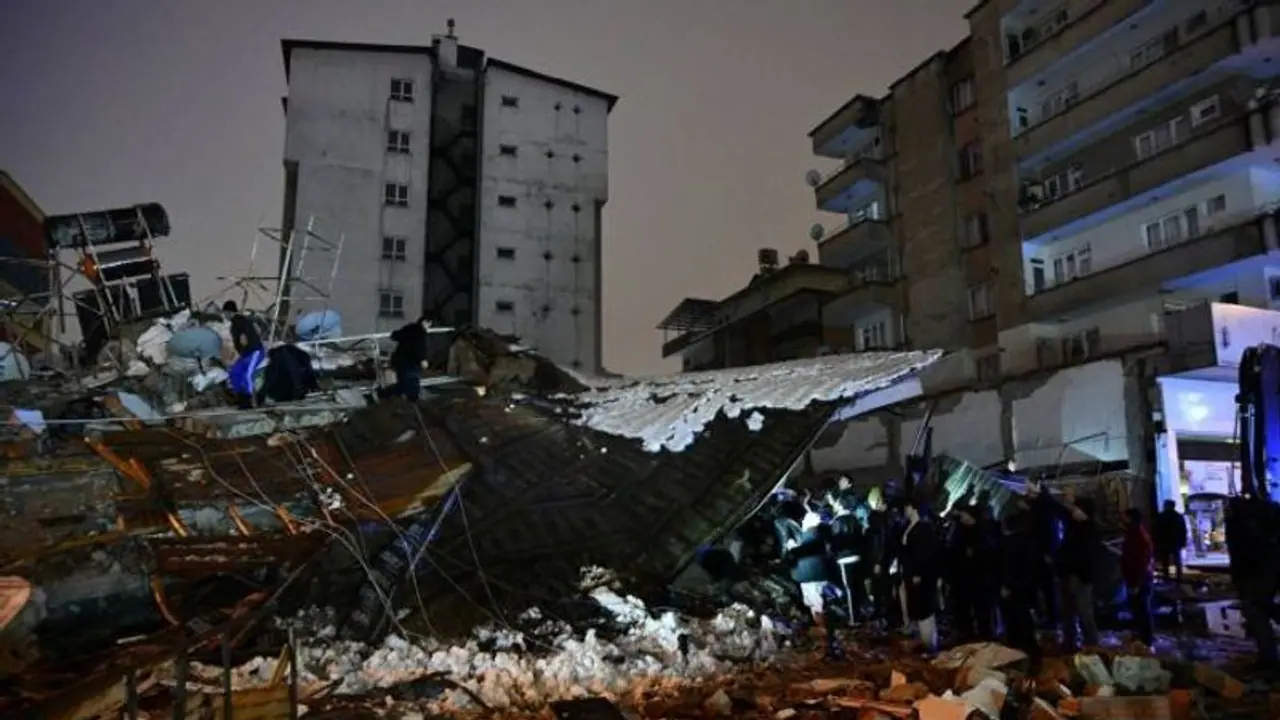The earthquake occurred at a depth of 10 miles with an aftershock measuring 6.7 on the Richter scale, the USGS said.
An earthquake measuring 7.8 on the Richter Scale has rocked Turkey and Syria. At least 1300 people have been reportedly killed. At least 326 people died in government-controlled parts of Syria, according to the latest count. At least 912 people also died in Turkey, Turkish President Recep Tayyip Erdogan said. The toll is expected to rise further.

According to the United States Geological Survey, the earthquake hit at 4:17 am local time near the Turkish city of Nurdagi. The earthquake occurred at a depth of 10 miles with an aftershock measuring 6.7 on the Richter scale, the USGS added.

In Turkey, reports on social media indicated that the earthquake caused widespread damage. Videos showed buildings being reduced to rubble as rescue teams cleared the debris and pulled people out.
Turkish President Recep Tayyip Erdogan took to Twitter to inform that 'search and rescue teams were immediately dispatched' to the areas impacted by the quake.
"Our priority is to rescue people who are trapped under ruined buildings and to transfer them to hospitals," he said.
In Turkey's Malatya province, which is near the epicentre, at least 130 buildings have reportedly collapsed.
According to the initial reports, at least 15 people have lost their lives. However, this figure is expected to be higher. The population of Gaziantep is said to be around 20 lakh. Of these, 5 lakh are Syrian refugees. There is a possibility of a loss of life and property on a large scale due to the earthquake.
Aftershocks in Middle-East
According to media reports, the tremors of the earthquake were also felt in Israel. Strong tremors were felt in Israel after many years. Some people also felt aftershocks after the initial quake. In Israel, the Magen David Adom -- Israel's National Emergency Pre-Hospital Medical and Blood Services Organization -- said it had not received any requests for emergency assistance.

Image: A view of the destroyed buildings and damaged vehicles after earthquakes jolts Turkiye's provinces, on February 6, 2023 in Kahramanmaras, Turkiye. Photograph: Tunahan Akgun/Anadolu Agency via Getty Images
Israel, which lies on the seismically active Syrian-African Rift Valley, has been preparing for a major earthquake for decades. Historically, this country has experienced severe earthquakes, on average, once a century. The last strong earthquake occurred in 1927.
Earthquake tremors were also felt in Cyprus, Syria, Lebanon, Greece, Jordan, Iraq and Romania, Georgia and Egypt. The earthquake shook buildings in Beirut.
